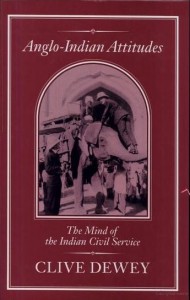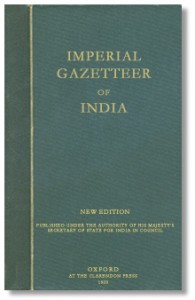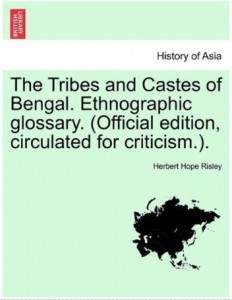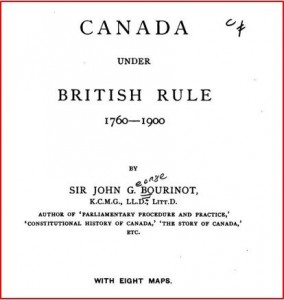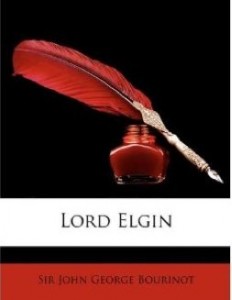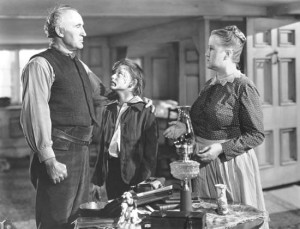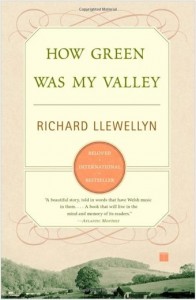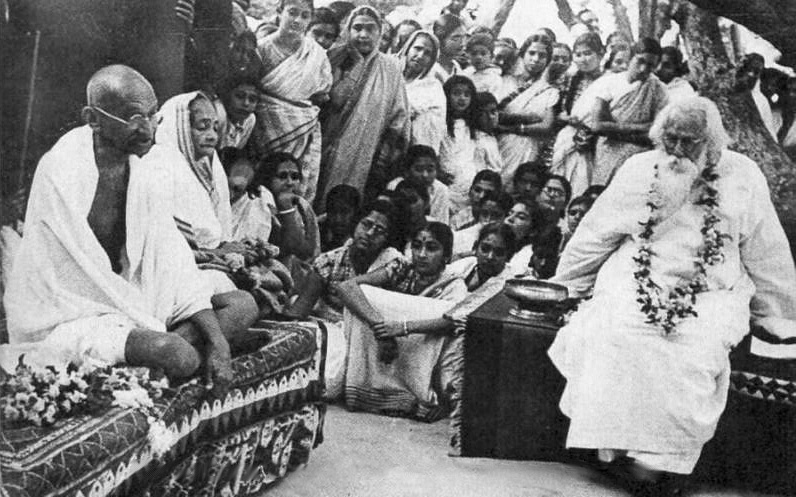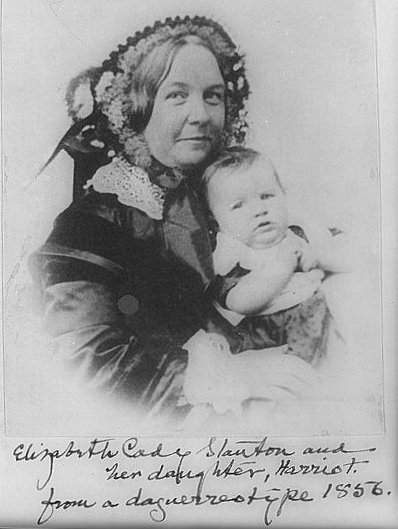They had left Delta at around 7 in the morning. Neil had tossed in a pair of jeans, socks, a shirt and some personal items along with his laptop, his iPad and a lot of his photographic gear. He carried a total of three digital cameras, two of them of interchangeable SLR type and the other a smaller pocket version. He carried five different kinds of lens and a binocular too. He also packed in his large tripod with the Gimbal head. He was not sure if he would be able to use all that. But he took them anyway. He also carried an extra pair of shoes and some gloves, and his iPod, so he could listen to an audio book if Mabel approved, or to some light music.
Mabel had joined him with a bag and a backpack of her own. Apart from all that, she carried a bag full of edibles and a flask of coffee and two mugs. She was better organized on these issues than Neil.
She had taken a liking to some of Neil’s hobbies. One of them were the eBooks he carried on his iPad.
He had a rented SUV for the trip and had included Mabel as a co-driver. In the first hour, as he travelled through the towns of Delta, Surrey, and Langley and got on the Trans Canada Highway and headed for Abbotsford. He had been listening to the radio to check on weather and road conditions. Nothing particular. The day ahead was without rain and with plenty of sunshine.
Mabel had by then flipped through a number of eBooks on his iPad, occasionally asking him about them. She checked Gwynne Dyer’s Climate Wars, and heard Neil mention that Dyer, a Canadian born British resident was among the best in current affair journalism and this book was on a vitally important subject – on Climate change. She mentally ear marked the book for future reading.
Next were a couple of old books that were scanned and put up on line free of charge from the British Library through joint effort of the library and Microsoft. These two books had to do with the life and times of the East India Company, a corporation that controlled and ran most of India before the Sepoy Mutiny in the mid nineteenth century, at which point the queen Victoria took control of the subcontinent. They were not retyped, or converted to text in any other way. They were scanned pages of the actual books, complete with rubber stamps, pencil notations and all. The quality of the original books were very good, so the scans too were very good. These books were published around the year 1810, a good two century beforehand.
Neil told her she might find the books a bit heavy to read. But they were interesting to Neil primarily because these included part of history of India and thus linked to his own past.
Mabel decided to read at least one of them, when she acquired an eBook reader herself. Neil had casually asked if she liked the idea of an iPad, but Mabel had discouraged him from trying to buy her a present of an iPad. She was not ready yet, she felt, for expensive gifts from Neil.
Next was another book, named Lord Elgin. It was an editable eBook scanned under the Project Gutenberg, of a published version that was written by Sir John George Bourinot, printed by George N. Morang and Company, Toronto, in the year 1903. It was about one James Bruce who apparently was a british appointed Governor of Canada a long time ago.
Mabel inquired about that book. “How come you have this book about an Earl of England?”. She showed him the book on the iPad screen.
Neil chuckled. “I am not familiar with the Earldom, or Earlhood, or whatever is the right term. But I still doubt very much, that Sir James Bruce was an Earl of England. I think the two places he was an Earl from, were Elgin and another place Cardicare or something. I don’t even know what exactly an Earl is. But, he is better known as Lord Elgin. So I guess he was not just an Earn, but also a Lord. Not sure which one is better.”
Mabel nodded. She too was not sure about Earls or Lords. “But why do you have this book?”
“Ahh, thats easy. He was a very important man both for Canada and for India. He too represents part of the history that shaped India. He was equally important for China, all in the middle of the nineteenth century. And therefore, I thought, I should read up on this rather important man.”
Mabel flipped through the pages. Neil had pulled the car to the right lane and fixed the cruise control at a hundred kilometers an hour, leaning back on the seat and easing up. Unlike them, most of the Canadians were busy going south across the border, presumably for shopping. One could buy stuff cheaper in the US than in Canada. He knew folks were heading south because the radio warned people of as much as 90 minute wait at the border at the Peace Arch in White Rock and nearly that much again in multiple other check points along the border. This long a waiting line was most unusual. Neil felt a bit smug, about beating the traffic and heading east to the Canadian Rockies. There should be more to life than buying junk. But he was careful not to mention it to his friends or neighbors. To each his own.
He was thankful though, that Mabel more or less shared his view. At twenty two, she appeared a lot more malleable and Neil suspected that some of his views were perhaps rubbing off on her. He was not sure if that was a desirable condition.
“How was he important?” Mabel read through a bit and asked.
“Well, as you can see, he was a Governor of Canada. Actually, his position was not that of the current rank of a Governor General. The Queen still appoints a Governor General for Canada as her representative. But the first such Governor General of Canada, I think, was from the 1880s. Lord Elgin was in charge of the territory before that. I think his rank at that time was the Governor General of the Province of Canada. In other words, Canada was, at the time, a province of the British Empire. IN the 1880s, I suspect, Canada became a nation under the Kingdom, but separate from Great Britain.
Anyhow, he served under Queen Victoria as the Governor General of the Province of Canada in the 1840s or 50s, before he was moved to the far East and eventually became the Viceroy of India.”
“Really? I viceroy ? Whats that?” Mabel flipped through some more pages.
Neil slowed down behind a truck and eventually changed lane to overtake the slow vehicle, and then go back to the right lane and set the cruise control. A large sign of the Greater Vancouver Zoo flashed past them as they moved in a general southeasterly direction towards Abbotsford and beyond.
“I am not sure what a Viceroy is. Generally, the prefix “Vice” means it is below a higher rank, like a Vice-president. I am not sure if Viceroy follows that logic. He was instrumental, I believe, in sending additional forces to aid the administrators of India during the Sepoy Mutiny of 1857. That was a pretty important historical event for India under the British rule.”
Mabel looked up at him. “Really ? Is that all in this book?”
“Umm – Perhaps. Perhaps not. That book was written in Canada so am not sure. But, it is available free of charge and I thought I owe it to myself to read up on that.”
Mabel reached out and touched his cheek, fondly. “And what is Sepoy Mutiny?”
Neil drove past the Abbotsford airport. The road turned to eastward as they entered the town of Abbotsford. Neil glanced at the fuel gauge. IT was nearly full. Abbotsford had cheap gas. But it wasn’t worth it yet, to stop over here to fill his tank.
“It was a rebellion in India against foreign rule. It was primarily conducted by the Indian soldiers working under British rulers. The Hindi name for a soldier was Sipahy. Same name also applied to various other languages in India, such as Bengali. But the English called them Sepoy. Hence the name – Sepoy Mutiny. The mutiny itself was geared to throw the british out and re-install the members of the original family of ruling Emperors and Kings that served under that Emperor. The rebellion nearly succeeded, but ultimately failed. There were a lot of bloodshed. But the common man did not take part. India did not, at the time, have any sort of a middle class. Also, the land was still considered fragmented under various little kingdoms, all of which technically were in some sort of a pact with the East India Company, and by extension to the British ruler.”
“Wow. And then ?”
Neil negotiated the car past other vehicles and left Abbotsford behind. The arrow straight road on the flat lands of the valley headed into the distance in between towering hills on boat sides. The topography of the land began to change. They were leaving the flood plains and entering the mountain range.
The road turned northeast. They were heading towards the southern bank of the Fraser river and the Chilliwack Mountain.
“And then what ?”
“Then what happened to the Mutiny, the Queen and to Lord Elgin?”
“Well. The Mutiny failed. India remained under control of the British, and would remain so for another ninety years. But the control shifted from East India Company to the British Crown. Queen Victoria took control. And within a generation of that, a new layer of a rich Indian Merchant class mushroomed out of the population in major trade centers by collaborating with the British business people. This rising affluence also trickled down to a handful of service holders, who learned to speak English with an accent, and became the cogs that ran the wheel of the British Empire in India. The railways came, mostly to take local produce away to England at a price point that was preferential to the crown. All this also gave rise to the first real Indian middle class that has some education, and the first pan-Indian feeling, a sense of Indian-ness rather than being subject of this or that King. It would be another generation and more, before Annie Besant, Motilal Nehru, Tagore, Gandhi, Bose and others would start arriving on the scene. India was never going to be the same again.
Its a long and bittersweet story of exploitation and enlightenment going hand in hand and affecting multiple hundreds of millions of people. My own grand father was part of it.”
“Wow. I have a lot to catch up on India.” Mabel wondered.
“You don’t have to. You can just look at me and see a couple of hundred years of Indian history right on the tip of my nose” Neil joked.
Mabel cuffed him playfully.
“So what else do you have in this collection ?”
“Well, there are hundreds of books. You can see. There is even one on Canada’s old history, also from the Gutenberg project”
Mabel checked the next few books. “Indeed – Canada under British Rule. Wow. Have you read that already?”
Neil shook his head. “Nope. But I intend to read up on it, starting from the French involvement in the sixteenth century onward. Unfortunately, this book does not cover the history of the first nation people. That, would be part of other books” Neil nodded.
Mabel flipped through more of the books. “How do you decide which book to read? There are so many here!” She wondered.
Neil was watching the step ladder like formation at the side of the hill on his left. He speculated on how that happened, and if a glacial passage could have caused it. Not feeling sure, he decided not to comment, but did slow down and rolled his drivers side window down. Picking up one of his cameras one handed, he pointed the auto focus mode camera out of the window and clicked off a few shots before lowering the camera and getting the window glass up again.
“I normally do not read bestseller list. So I am not part of the positive feedback loop.”
Mabel was watching his efforts to click pictures while driving, mildly alerted. But as he did not take his eyes off the road and continued to hold the steering on one hand, while driving much slower than the speed limit, she refrained from commenting on it. “What positive feedback loop?”
“Well”, Neil prepared to get back into the fast lane, to get around a series of eighteen wheeler trucks, “I heard that sometimes the Publisher of a book would send its own agents to buy back huge quantities of their own released book, anonymously, to create the impression of high demand. This in turn prompt the bookseller to order more copies of the book, which again would be gobbled up by the printer’s agents.“
Neil steadied the vehicle on the right lane and set the cruise control at a hundred.
“Eventually,” he continued – “it would merit a position in the best seller list. As soon as that happens, there would be people that might buy copies of the book simply because it ranked in the charts. At that point, the real sale of the book picks up rapidly. Then, if the book is any good, news of it also spreads through word of mouth, further catapulting its sale till it reacher its own peak. This is called the positive feedback loop. As more books get sold, more it climbs in the charts. More it climbs in the chart, more folks learn about it and buy copies of the book as a result. Like a snowball hurtling down a hill, it gains size and momentum on its own, and that helps it overcome small obstructions and gain speed – an example of the positive feedback. Then, once the snowball reaches the flatland, or the book sale reaches its peak, the momentum tapers off. But by then, the printer is expected to have recovered his initial investment many times over.”
“I see. Do they really do that ?” Mabel was surprised.
“I do not know, but since I read about it, I guess this happens time to time.”
“And why are you not part of that loop ?”
“Why? Because I do not buy books according to its chart ranking.”
“Why not?” Mabel asked. She was impressed, up to now, on his book collection. But she wanted to know more.
“Thats because I realized a long time ago, that my main interests do not tally with the bulk of the reader community. Therefore, if I read the top of the charts regularly, I am liable to be more disappointed than happy. I have tried it. And so, these days, I only read a book of which I am fairly certain of the content and the style. And besides, I am not too much into fiction any way, and most of the best sellers are novels.”
Mabel nodded, looking back into the list of books on his iPad, reading them aloud –
Imperial Gazetteer of India,
52 best day trips from Vancouver,
The Global Hunger Index 2011,
Growing a better future – Food justice in a resource-constrained world,
No Logo,
In Theory of Moral Sentiments,
Sick Water,
Food security, farming and Climate change 2050,
Making your eBook
Ipad Publishing Guide
Plastic Ocean
Happy Birding
Nature Writing
The Molecule Hunt
The Indo-European Controversy
Geology of British Columbia
Relativity
On the Origin of Species
Descent of Man
Sayings of Confucius
Glimpses of Bengal
On the Duty of Civil Disobedience
A World without Ice
—– Mabel stopped looking further.
“Whats No-Logo about”
“I have not read the book fully yet. Its by Naomi Kline. She is Canadian. In fact, Canada dos pretty good, I’d say, when it comes to its writers. Naomi takes aim at what she calls the “Brand Bullies”. Its the business of popularizing brand names and then enticing unsuspecting people into shelling out absurd sums of money for buying goods that should have cost a tenth of what they pay. Something like that.”
Mabel did not ask further. She herself had a few Brand name stuff with her, and subconsciously felt uneasy about owning up on them.
“And Plastic Ocean ?”
“Its about plastic pollution floating on the sea and getting inside the stomachs of unsuspecting creatures. Its a horrible story, but I need to read it.”
“Ohh”. Mabel flipped through a few pages, reading, then mentally marked this one for future reading too.
Neil slowed the car and pulled it over on a lookout point by the side of the river. Across the river, the high mountains of the Sasquatch Provincial Park was angularly lit by the eastern sun. To the left there was the bottom edge of the Long Harrison lake as well as Harrison Hot Springs, although he could not see them over the other side of the hill. The scene before them was beautiful, and he intended to click a few shots.
Also, they could exchange drivers, if Mabel was up to it.
He took his digital SLR with a fat lens in his hand and walked a few paces off the vehicle. Mabel too got out and looked at the scenery. A solitary Bald Eagle, perched high on a Douglas Fir, watched them in stoic silence.
Neil let the cool breeze on his face.
Looking across the flowing river, and along the far slopes of mountains, he could see the beginning of the broken vertical cliffs of soil erosion, as a highland flat gave way to the lowlands cut through by the river. The soft soil of the higher flats before the hills started would be held together by grass and shrubs. Rain and wind would begin to erode the edges, creating the shallow broken cliffs that drained the water and brought down more soil into the stream, eventually to be carried out to the ocean as further silt deposit by the Fraser river.
It occurred to him that he was outside of the positive feedback loop not just with regard to selecting books to read, but also with regard to selecting routes of his travel. More people go south across the border, and find clearance sales in department stores and shopping plazas, more they talk about it, more it gets in the grape wine. As a result, even more people rush south to buy even more amounts of cheap goods that are eventually going to fill some unfortunate landfill as a scar on the landscape. He was outside of that loop too, thankfully.
He could hear a plaintive cry of a perching bird somewhere, but could not see it. The sky was dark blue with white puffs of clouds that were hit at right angle by the rays from a rising sun. A few more eagles could be seen soaring in the thermals.
“This country is beautiful” he said.
Mabel kissed him.










